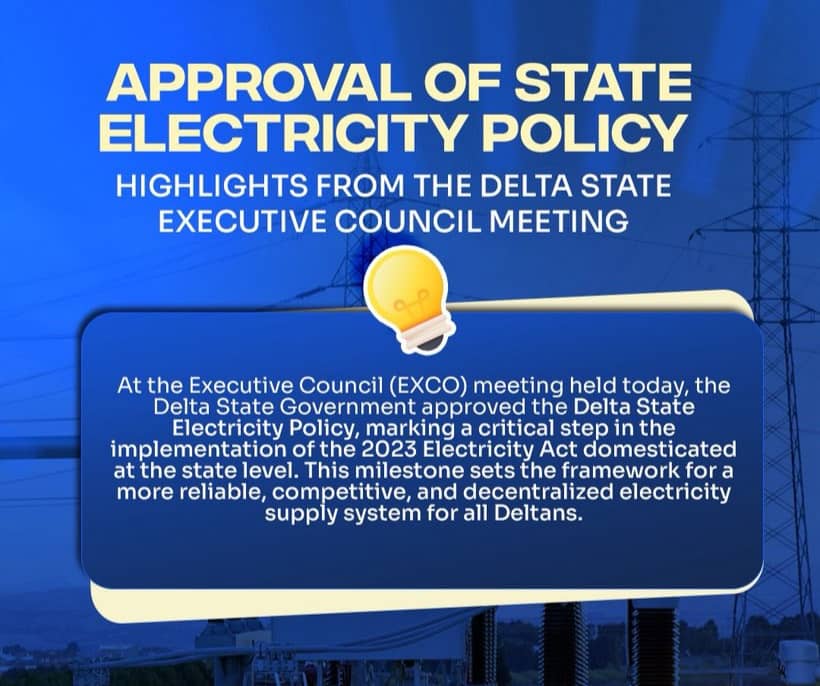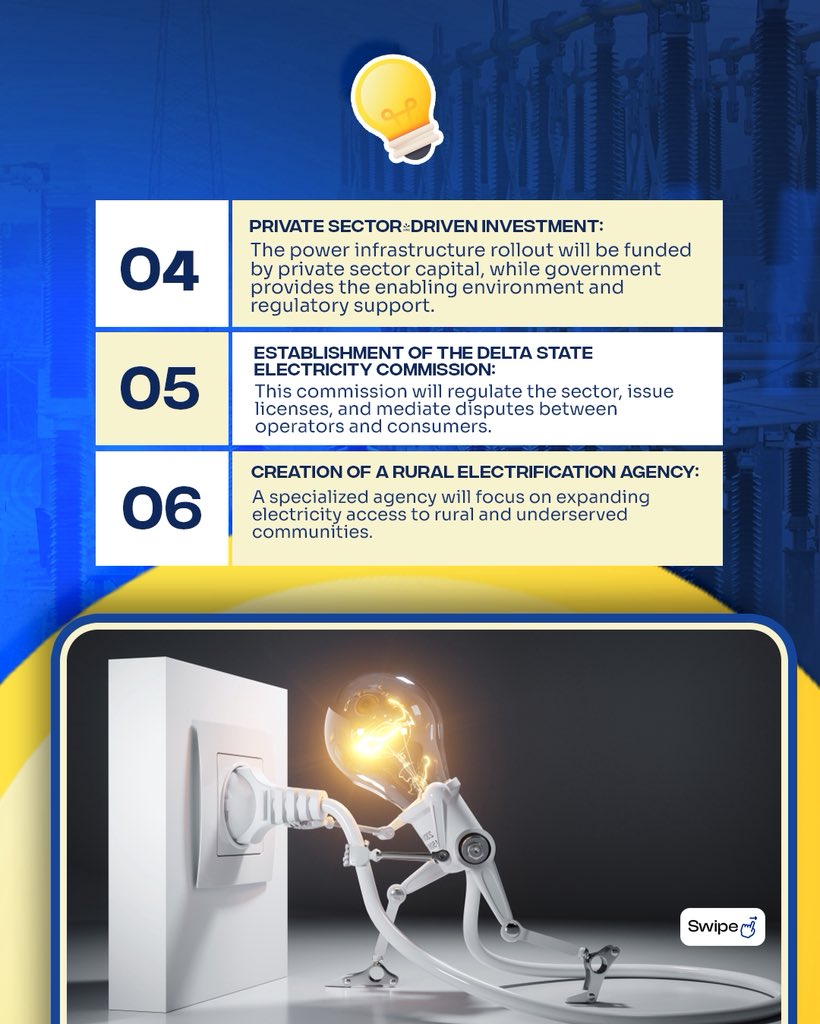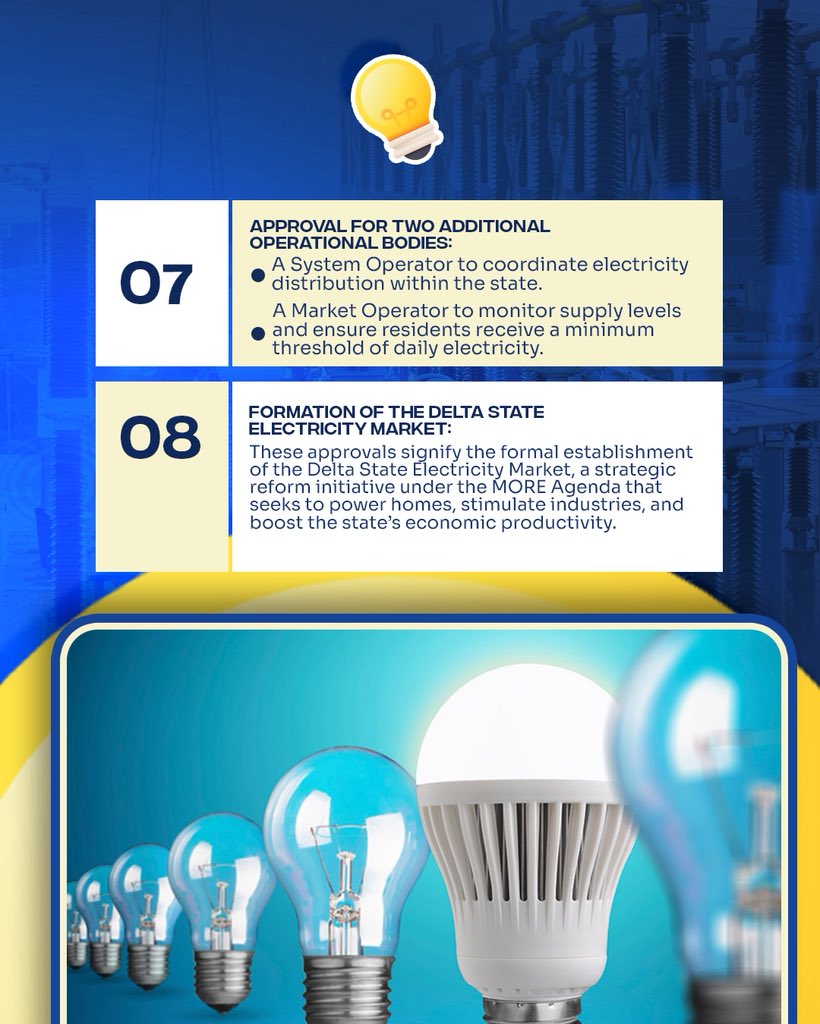In a historic move, the Delta State Executive Council on Tuesday approved the Delta State Electricity Policy, a major milestone in the state’s journey towards delivering reliable and affordable and decentralized electricity to all Deltans.
According to the state government, at the heart of this policy is a clear commitment to provide steady power supply at competitive pricing by leveraging private sector investment, promoting innovation, and embracing a diverse energy mix.
To achieve this, the state has adopted a Mini-Grid Model, enabling end-to-end power solutions across different locations. This model opens the leeway for various energy sources, solar, gas, hydro, and others to power communities and industries.
Some of the key highlights of the policy include establishment of the Delta State Electricity Commission to regulate the electricity space, issue licenses, and ensure fair competition.
The creation of a Rural Electrification Agency to specifically address the electricity needs of rural and underserved communities.
The approval of a Systems Operator and Market Operator to coordinate energy flow and ensure efficient power transactions.
The engagement of a consultant to design a detailed roadmap for implementation and sustainability.
The Electricity Policy according to the state government signals a bold step by the Sheriff Oborevwori-led administration to unlock the economic potential of Delta State through dependable electricity access.
With this bold move under the MORE Agenda, Delta is unlocking new possibilities for Deltans from improved electricity in homes and schools to better conditions for businesses, jobs, and everyday living.






